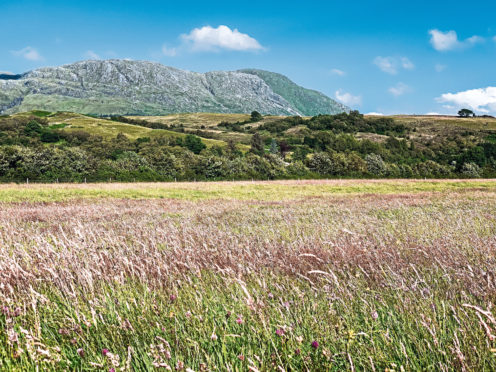Farmers and environmentalists have joined forces to beg the Scottish Government to show leadership and clear messaging on the future direction of rural support.
A debate hosted jointly by the Scottish farmers’ union (NFUS) and the Scottish Wildlife Trust (SWT) heard both organisations apply pressure on government to provide the farming industry with the right tools and financial backing to enable it to be at the forefront of tackling both the climate change and biodiversity crises.
Their demands are for clarity on the direction of travel for land use and farming policy and detail on production and environmental outcomes; long-term funding to help producers deliver biodiversity and climate targets and a commitment to investing in natural capital.
Launching a “Champions for Change” initiative, which over the next few months will highlight the positive action many farmers are already taking, SWT chief executive Jo Pike insisted farmers must be at the heart of discussions and said there should be no need for producers to choose between productivity or environmental stewardship outcomes in future.
She added: “Food production is dependent on a healthy natural environment and well-designed schemes can reward farmers financially for producing high quality food plus at the same time as protecting and restoring our natural environment. It definitely doesn’t have to be either-or.
“What is clear is that here and across the world we need to think differently about how we produce food.
“We know many farmers do want to champion change. On a Scotland-wide scale we need to see measures that will improve ecological connectivity, more native woodlands on farms, restoration of peatlands, improvements in soil health and restoration of the riparian zone next to riverbanks.”
NFUS vice-president Martin Kennedy said priorities for Scottish agriculture include the ability to produce top quality food in a sustainable manner which will avoid “off-shoring” emissions to producers in other parts of the globe, as well as support to enhance the environment to reverse the decline and biodiversity and lead the way in climate change mitigation.
He added: “It’s fantastic to see collaboration between SWT and ourselves – we’re trying to achieve the same goals – but farming is a long-term game, we’re farming for generations to come in some cases and we need long-term commitments to enable us to move forwards.”
Lanarkshire organic farmer Carey Coombs agreed a long-term vision was essential and pointed out that all farmers could be described as practical ecologists as they manage and manipulate ecosystems to produce food.
“We inherently challenge biodiversity and what we need to do now is get a better balance between what we have been doing and what we need to do in future,” he said.
“All the high level rhetoric is to be welcomed – it’s great. But we need something put in place that gives us the security to plan for the future.”
